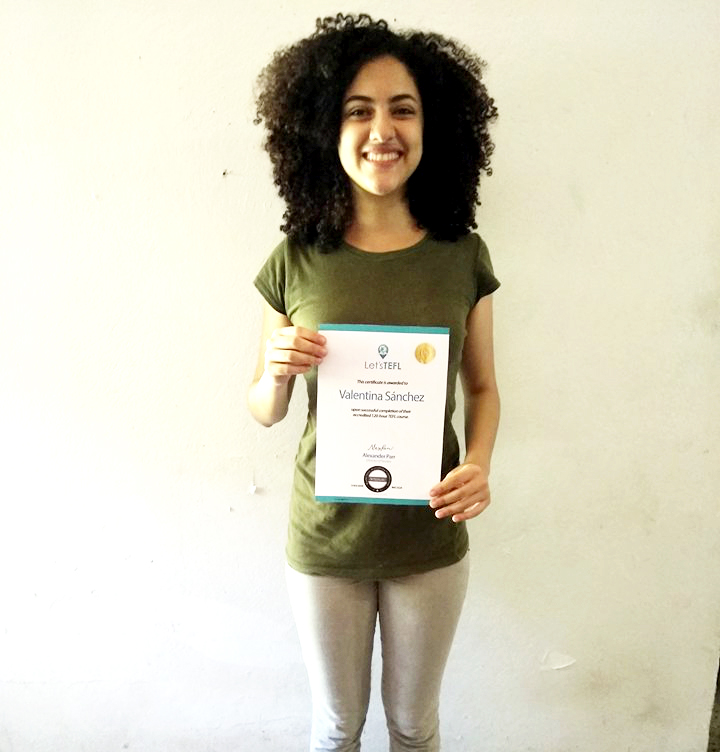Non-native English Speaker?
We’ve got your back!
It can be more challenging as a non-native English speaker,
but there are plenty of options available.
Teaching English as a Non-Native Speaker
The term “non-native English speaker” usually refers to someone who doesn’t have a passport from one of the following countries: UK/US/CAN/IRE/AUS/NZ/SA (read on for more details).
As a non-native speaker, you might be restricted from teaching in certain countries due to strict visa and work permit requirements. Certain online teaching companies have similar policies any may only give contracts to ‘native’ English speakers.
But stay positive! We’re here to help. With our TEFL training there are still lots of opportunities out there for you. Many schools and visa departments are aware of the problems with such passport-based policies and there’s still a LOT of options for you.
Read on to discover the different paths you can take…

Why do some countries require ‘native’ speakers?
This requirement developed in popular teaching destinations such as China, Korea, and Thailand when they wanted to increase the level of English spoken by their citizens.
As it’s difficult for foreign schools to judge whether a teacher has the necessary skills to teach English, these local governments began to introduce policies to restrict the nationalities of teachers who could gain work permits for teaching English.
It was believed that the UK/US/CAN/IRE/AUS/NZ/SA had the longest history of speaking English and the best standards in the modern world. While this belief may or may not be accurate, visa policies have been developed around it, and if you don’t have a passport from one of these countries, it could have some impact on where you can teach. Unfortunately, this is true even if you have grown up speaking English as your first language, or have studied it to native-fluency, though there are some exceptions…

Victoria with her 120-hour TEFL certificate.
What advantages do you have as a ‘non-native’ speaker?
Many ‘non-native’ speakers have actually grown up speaking English as their primary language and may even have better language skills than many teachers who hold the passports mentioned above.
Lots of other non-native speakers have dedicated years of their lives towards studying English, and have invaluable experience which they can apply towards teaching the language to others. Many native speakers learned English through ‘direct immersion‘ and are unaware of the specific grammar patterns, rules, and tenses.
Many employers are aware of these strengths, and there are plenty of opportunities for you around the world.
Teaching online as a non-native speaker
Teaching English online can be a great way to earn money from the comfort of your home.
Some platforms specifically cater to native speakers, and use this as a marketing angle to attract their students. While it wouldn’t hurt to submit your resume to them, there are other places where you should focus your efforts.

51talk is a global online teaching platform with hiring operations around the world, and a range of regional sites. They also have classes for both younger students and adults, which can be a fun change of pace. Another great point about 51talk is that they’re also non-native friendly (woo!).

Italki is a huge platform which connects teachers and students from all over the world. Unlike other platforms which only specialize in providing English-language tuition, italki offers the opportunity to teach/learn a wide range of languages. It’s also non-native friendly (double woo!).
Countries which hire non-native speakers
Here are some of the countries in which non-native speakers can gain fully-legal work permits for teaching English.

Argentina
Requirements
To teach in Argentina you just need:
• English language fluency
• Any passport
• A TEFL certificate (recommended)

Brazil
Requirements
To teach in Brazil you just need:
• English language fluency
• Any passport
• A TEFL certificate (recommended)

Cambodia
Requirements
To teach in Cambodia you just need:
• English language fluency
• Any passport
• A TEFL certificate (recommended)
China
Requirements
To teach in China you need:
• A degree from the UK/US/CAN/IRE/AUS/NZ/SA
.
• A clean criminal record
• A 120-hour TEFL certificate
• Under 55 years of age

Costa Rica
Requirements
To teach in Costa Rica you just need:
• English language fluency
• Any passport
• A TEFL certificate (recommended)

Japan
Requirements
To apply for the JET program in Japan you need:
• English language fluency
• Any passport
• A clean criminal record
• A TEFL certificate (recommended)

Mexico
Requirements
To teach in Mexico you just need:
• English language fluency
• Any passport
• A TEFL certificate (recommended)

Peru
Requirements
To teach in Peru you just need:
• English language fluency
• Any passport
• A TEFL certificate (recommended)

Russia
Requirements
To teach in Russia you need:
• English language fluency
• Any passport
• A TEFL certificate (recommended)

Spain
Requirements
To teach in Spain you need:
• English language fluency
• Any passport (Easier if EU or US/CAN)
• A TEFL certificate
• A degree helps but is not essential
Thailand
Requirements
To teach in Thailand you just need:
• Any passport
• A TEFL certificate
• A TOEFL/IELTS certificate (for non-natives)
• A degree
Vietnam
Requirements
To teach in Vietnam you just need:
• Any passport
• A TEFL certificate
• A bachelor’s degree
• A clean criminal record
These are just a few of the most popular countries in which non-native speakers can gain legal work permits/visa for teaching English. Vietnam and Thailand are among the most favored due to their ease of access and low costs of living, though most South and Central America are open to you too.
Thanks to anti-discrimination legislation, it’s also possible to teach in most European countries – though it can be more challenging to get a work permit than in other regions if you don’t have an EU passport.
Career paths and other options
Aside from getting your accredited TEFL certificate, there are some other things you can do to increase your options as a non-native teacher…
Overseas degrees
Some countries make special exceptions for teachers who have gained a degree from a native English-speaking country. For example, if you’re a non-native speaker, but have a degree from the UK/US/CAN/IRE/AUS/NZ/SA, it’s possible to gain a work permit for teaching English in several regions across China.
Beijing, Shanghai, Shenzhen, and Tianjin have recently closed this possibility, but Jiangsu, Chengdu, Sichuan, and Jilin are among provinces where it’s still possible.
Japan also has a similar option for non-native teachers if they’ve studied over 8 years of education taught primarly in English.
TOEIC/TOEFL certificates
As a non-native speaker, some employers may struggle to really grasp how good your English language skills may be. They’re often not fluent enough to make the judgement themselves.
This is where a TOEIC/TOEFL certificate can be helpful. You’ll need to sit a range of tests icluding grammar exams and a speaking exercise, and at the end will gain a certificate showing your level of fluency.
Some countries, such as Thailand, have special conditions which allow non-native speakers to gain a work permit for teaching English if they have a suitable TOEIC/TOEFL certificate. They can also be helpful for job applications outside of teaching, and also for applying to study at overseas universities.
Volunteering
If you’re more interested in the experience of living overseas, and the range of opportunities that can bring, you could consider volunteering.
It’s often possible to join volunteer programmes around the world where you can teach English to students in local communities. These programmes often enable non-native speakers to gain a visa enabling them to reside and teach in the country.
While you might not come away with a pay check each month, they offer incredible experiences, allow you to develop your teaching skills, and even learn local languages at the same time. They can also help you to explore communities which are largely inaccessible to teachers which rely on paid work.
Check out our blog post here on volunteering in Thailand: Teaching Refugee Students in Thailand
Teaching with your partner
If you’re married and your partner can qualify for a work permit, you may be able to qualify for a spousal visa.
This is a visa or residence permit which allows you to stay in the country with them while they work. In certain countries this spousal visa may also come with working rights, allowing you to work part-time. As schools wouldn’t need to apply for a work permit for you, it can make it possible to teach English there legally.
While this might not be an option for everyone, it could be something worth exploring if you are married (or soon to be!).

 Rated 97% on GoOverseas!
Rated 97% on GoOverseas!